Your cart is currently empty!
This International Teachers’ Day, as we celebrate educators worldwide, we pay special tribute to the Filipino teachers who have made significant contributions to shaping not only minds but also communities across the Philippines and beyond. With this year’s theme, “Valuing Teacher Voices: Towards a New Social Contract for Education,” we recognize the critical role Filipino teachers play in transforming education, addressing local challenges, and preparing the next generation for the future.
Filipino Teachers: Champions of Learning and Culture
Filipino teachers are more than just conveyors of knowledge; they are culture-bearers, community leaders, and advocates of change. In a country as diverse as the Philippines, where cultural richness is deeply intertwined with education, teachers stand at the crossroads of tradition and innovation.
Throughout the archipelago, Filipino teachers often work under challenging circumstances—whether it’s in rural areas with limited access to resources or in urban centers with overcrowded classrooms. Despite these hurdles, they continue to demonstrate unwavering dedication to their students. They provide not only academic instruction but also life lessons that reflect the Filipino values of pakikisama (community spirit), bayanihan (cooperation), and malasakit (compassion).

Valuing the Voices of Filipino Teachers
This year’s theme emphasizes the importance of amplifying teacher voices in the global and local education discourse. Filipino teachers, with their unique insights and firsthand experience, are crucial in creating education systems that truly reflect the needs of Filipino learners. As the Philippines navigates a rapidly changing world—one that demands digital literacy, critical thinking, and sustainable solutions—teachers must be recognized as central to shaping the future of the nation.
Their voices should be heard in conversations about curriculum reforms, technological integration, and policies that aim to address issues like classroom shortages and teacher compensation. By involving Filipino teachers in policy-making, we create a more inclusive and responsive education system that addresses both the unique cultural context of the Philippines and global educational trends.

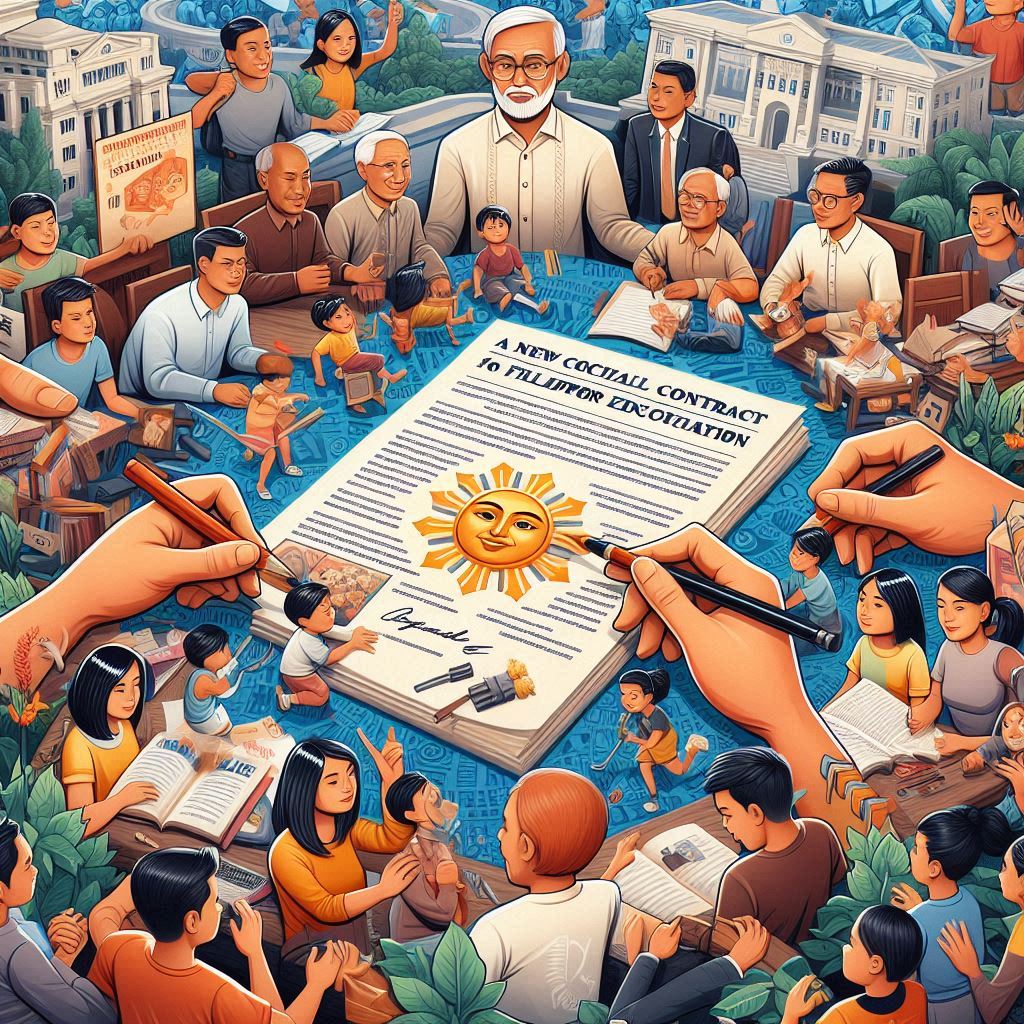
A New Social Contract for Filipino Education
A new social contract for education in the Philippines must place teachers at its core. This includes ensuring that Filipino educators receive:
- Proper compensation and benefits: Filipino teachers often face financial challenges, and there is a need for better salary structures and benefits that reflect the critical role they play in society.
- Access to continuous professional development: In an ever-evolving world, Filipino teachers need regular training to stay updated on new teaching methods, technology, and global education standards. Continuous learning empowers teachers to offer high-quality education.
- Improved teaching environments: From more accessible teaching materials to better classroom facilities, Filipino teachers deserve environments that allow them to thrive and help students succeed. Addressing overcrowded classrooms and providing digital tools are vital steps in improving education quality.
- Mental health and well-being support: Teaching can be emotionally and mentally taxing. It’s important to provide teachers with resources and support systems that care for their overall well-being.
By building this new social contract, we affirm the need to place teachers at the center of educational reform, recognizing their role not just as instructors, but as leaders and advocates for change in Filipino society.

Empowering Filipino Teachers for the Future
As we reflect on the journey ahead, the role of Filipino teachers becomes even more crucial in a post-pandemic world where education is rapidly transforming. The future demands new skills, adaptability, and innovation, and Filipino educators are up to the task. Whether it’s navigating blended learning or addressing the emotional and social needs of students, Filipino teachers remain resilient in the face of evolving challenges.
Celebrating Filipino teachers is also about investing in them. A society that values its teachers is one that invests in its future. By amplifying their voices, we ensure that Filipino educators are empowered to shape policies that impact not only their classrooms but the nation’s development as a whole.
Celebrating Filipino Teachers’ Resilience
The resilience of Filipino teachers shines brightly in times of crisis. From natural disasters to the COVID-19 pandemic, teachers have consistently stepped up, finding creative ways to continue educating, even when schools were closed. Their ability to adapt, coupled with their passion for teaching, exemplifies the heart and soul of Filipino education.
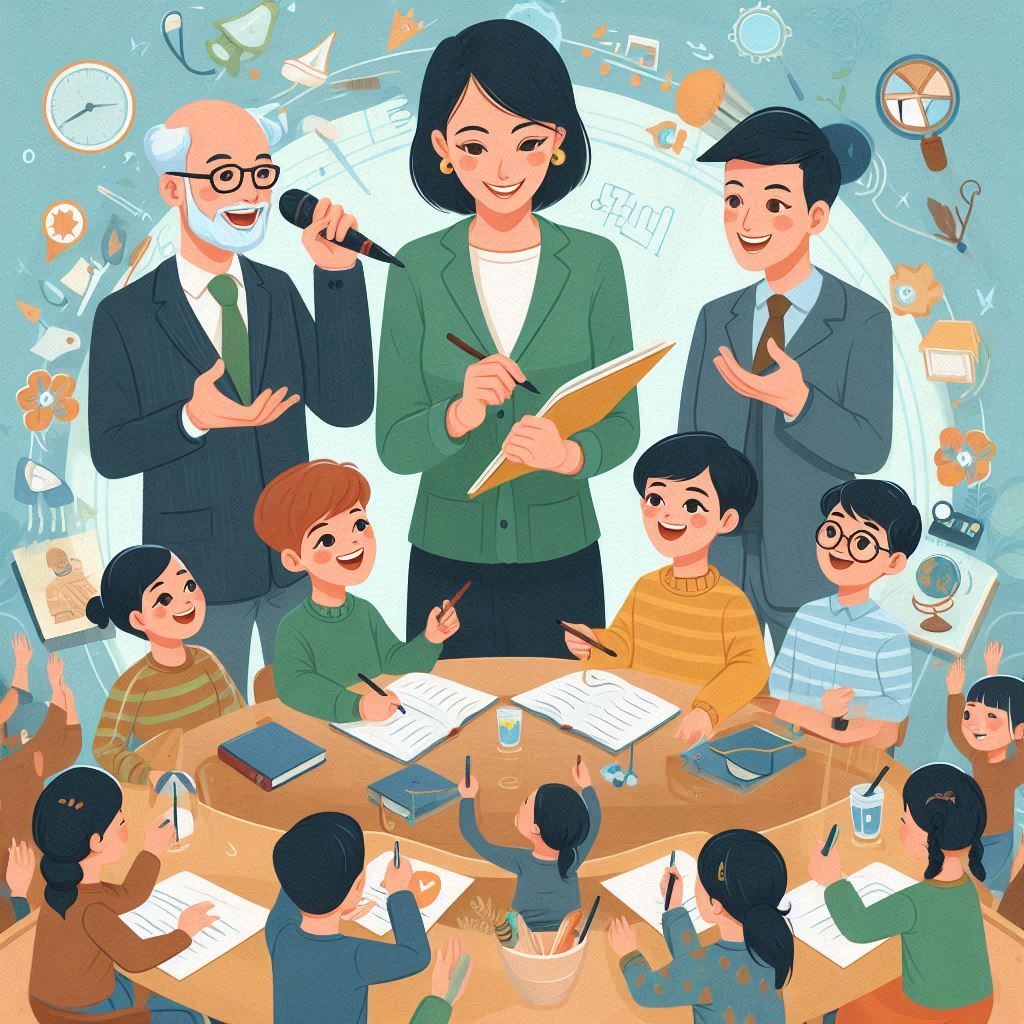
Their stories—whether in far-flung barangays, crowded urban schools, or even in international classrooms as overseas Filipino workers—are stories of perseverance, hope, and dedication. As we celebrate International Teachers’ Day, we honor these stories and the countless contributions they make every day.
Conclusion
On International Teachers’ Day 2024, let us stand in solidarity with Filipino teachers. Let us recognize their critical role in shaping the future of education in the Philippines. By valuing their voices, we create a brighter, more inclusive, and dynamic educational landscape where Filipino teachers are not just participants but key decision-makers.
Filipino teachers, maraming salamat po for your unwavering commitment to education. As we move towards a new social contract, your voices will lead the way, ensuring that every Filipino child receives the education they deserve.
Happy International Teachers’ Day 2024!







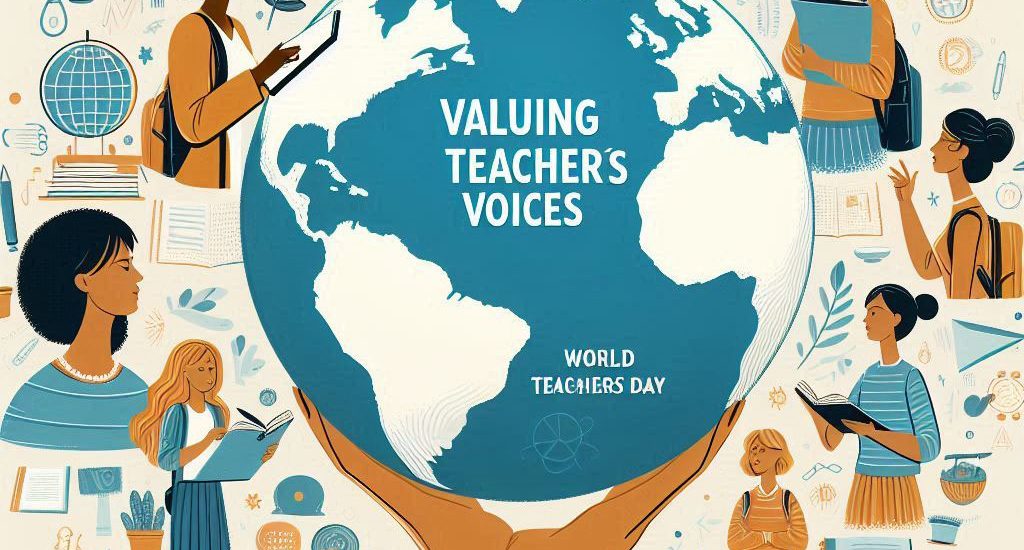








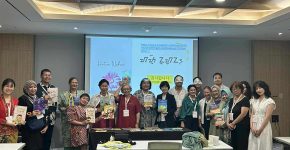


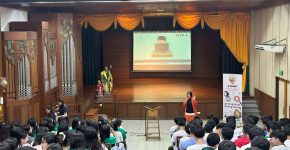
what is your mode of payment